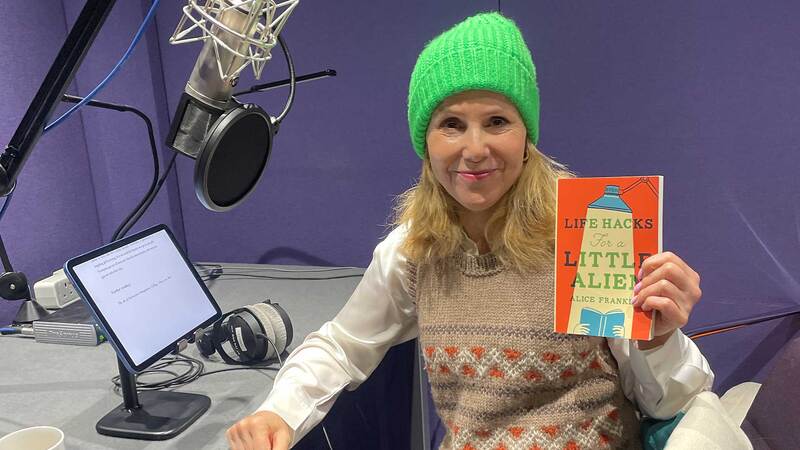You are viewing your 1 free article this month. Login to read more articles.
Q&A with Philip Pullman
Philip Pullman's comic strip The Adventures of John Blake will be published in The Phoenix Comic tomorrow (14th May) and a graphic novel of the comic strips will be published by David Fickling Books in spring 2017. He talks to The Bookseller.
What inspired you to write the story?
This was a very exciting project for me because I love comics and always have done. When I thought about a boy who lives on a ship that travels in time, I just started writing it. John Blake first appeared in The Phoenix in 2008 and after that original outing I thought about it as a film script rather than a comic. So I wrote the film script which was never made and, while I never had any serious expectations of being made, it was nice to get the story right. The film script I wrote is the basis of what Fred Fordham is using to do this graphic novel.
How did you and Fred work together?
Fred used the film script to make a comic book. I gave him some notes about what the character might look like. I told him one character might look like Dominic West playing James Bond, that sort of thing. I admire Fred very much. He’s got a good sense of drama and knows how to make a picture tell a great deal.
Can you reveal anything about the plot?
The thing about a ship that travels through time is that an infinite number of adventures can take place. I find that thrilling. And anyone could write a John Blake story so if Fred wanted to write one that would be fine. I could swan in and make a few comments then go away again.
Is the story aimed at a particular age group?
I never aim. As soon as you say a book is for 12-year-olds, no-one older will read it. A 14-year-old wouldn’t be seen dead with a book for 12-year-olds. And if it’s a book that a nine-year-old who is very bright will enjoy enormously, saying it’s for 12 year olds will put the parents off. It’s a terrible, terrible mistake putting the age it’s supposed to be for on the front of a book. I understand that booksellers and librarians have to have a shelf for 11-year-olds and that’s fine, but having it on the front of the book is monstrously wicked. I really don’t like saying who my stories are for. I don’t know, nor do I know how they will read them.
Do graphic novels get the attention they deserve?
They’re gradually getting more attention. One of the things that is helping is the number of very good graphic novels there are now. Persepolis by Marjane Satrapi, for example, is a classic. As more and more classic graphic novels appear there will evolve new ways of talking about them and forums for talking about them, such as university degrees. It will be possible to talk about comics in a grown-up, sensible way.
Are you working on anything else on the moment?
I’m working on a companion novel to His Dark Materials called The Book of Dust. It’s not a prequel or a sequel. There are some characters we know already, notably Lyra, and others who we’ve never met before. It will be published when my hair reaches the middle of my back. I made a stupid vow, which I’ve regretted since, to not cut my hair until I’ve finished this book.
Did your decision to resign as patron of the Oxford Literary Festival have an effect on author payments?
The Society of Authors says it's had a lot of response to it. Festivals that already pay their authors want to tell them they pay, others have realised it's time they started thinking about it.
What issues are there still to fight for?
Money. The huge discounting of internet bookselling has meant the income of the bulk of people who could earn a living 20 years ago can’t earn an income any more. And libraries are shutting all over the kingdom, to the eternal shame of the government. That means fewer PLR payments. We must not allow writers to get into the position musicians did when they were caught on the hop with the arrival of digital era and downloading music. We can’t go out and perform three nights a week and sell merchandise. The general public needs to realise books aren’t free. Information needs to be paid for properly. Also, publishers wanting to acquire all the rights to a book is wrong. It’s as wrong as those trawlers who drag their net across the sea bottom. Instead of bringing up just the herrings they bring up everything and throw most of it away. We have to be more careful and agents should be vigilant.



















